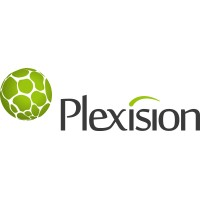AI Drives New Era in Transplant Diagnostics
July 26, 2025, 3:33 pm

Location: United States, Pennsylvania, Pittsburgh
Employees: 11-50
Founded date: 1947
Plexision, a biotechnology leader, secured significant investment from the Richard King Mellon Foundation. This funding fuels the integration of artificial intelligence and machine learning into advanced blood tests. The goal is revolutionary predictive accuracy for transplant outcomes. This shift moves beyond reactive diagnostics. It enables proactive management of rejection and infection risks. Patients receive precision care. Clinicians gain powerful decision support tools. This heralds a new future for transplant medicine, focused on individual immune profiles and optimized health.
A biotech firm just secured critical funding. Plexision, a Pittsburgh-based company, received a $365,000 investment. The Richard King Mellon Foundation provided the capital. This investment marks a significant step forward. It targets the integration of cutting-edge technology. Artificial intelligence (AI) and machine learning (ML) will now enhance its core offerings.
Plexision specializes in cell-based blood tests. These tests are vital for transplant patients. They assess immune status. They predict critical outcomes. The new funds accelerate AI and ML capabilities across these tests. This aims to dramatically improve predictive accuracy. Complex transplant outcomes will be better understood.
Transplant medicine faces persistent challenges. Managing immunosuppressive drugs is a delicate balance. Too little medication can trigger rejection. Cell-mediated rejection is a risk. Antibody-mediated rejection is another. Too much medication also poses dangers. It increases infection risks. Epstein-Barr virus (EBV) and cytomegalovirus (CMV) are common threats. Lymphoma can also emerge from over-immunosuppression.
Current diagnostic tools often fall short. Legacy testing provides limited visibility. Results are often reactive. They are typically binary: yes or no. Clinicians must integrate diverse clinical data. This often delays informed treatment decisions. A need for advanced, predictive insights exists. Plexision addresses this gap.
Plexision redefines transplant diagnostics. Its blood tests predict common rejection subtypes. They also foresee post-transplant infections. These capabilities leverage a common platform. It analyzes immune cell function. This offers a unified approach to complex immune responses.
The integration of machine learning elevates this platform. It ranks risks for multiple patient outcomes. This includes stable graft function. It predicts likelihoods of T-cell mediated rejection. Antibody-mediated rejection is also anticipated. The presence or absence of infections is flagged. Even infection-related lymphoma can be indicated.
These advanced capabilities are not theoretical. They underwent rigorous validation. Multi-center studies confirmed their efficacy. The findings will soon be public. They are set for presentation. The World Transplant Congress in San Francisco will host the reveal. This major event occurs in August 2025.
The expanded use of AI will boost the platform's power. It enhances the ability to rank and predict outcomes. This transforms the tests into powerful clinical decision support tools. Caregivers gain unparalleled insight. They can deliver precision transplant medicine. Decisions become more informed. Patient care becomes more proactive.
Speed is paramount in transplant care. Plexision’s proprietary technology delivers rapid results. Tests complete in as little as six hours. The maximum turnaround is 24 hours. This swiftness enables timely intervention. It allows clinicians to adjust treatment plans quickly. Patient safety improves significantly.
All Plexision tests meet high standards. They are performed at a specialized reference laboratory. The lab is located in Pittsburgh, Pennsylvania. It holds CLIA-approval. It is also CAP-accredited. These certifications ensure quality and reliability. Blood samples arrive from clinical partners nationwide.
The test results are crucial. They are used in conjunction with other clinical data. This holistic approach optimizes patient management. Each individual transplant patient receives tailored care. This leads to better long-term outcomes. It minimizes complications.
Plexision offers a comprehensive test portfolio. The FDA-approved Pleximmune test is available. It predicts transplant rejection in children. Specifically, it targets liver or intestine transplants. The lab-developed Pleximark test predicts kidney transplant rejection. PlexABMR is a recent development. It predicts antibody-mediated rejection.
Infection prediction is another key area. The PlexEBV test is designed for Epstein-Barr virus. The lab-developed PlexCMV test targets cytomegalovirus. These tests measure cell-mediated immunity. They provide critical information for managing immunocompromised patients. Early detection of infection prevents serious complications.
Beyond current services, Plexision supports R&D. It performs custom projects. These require integration of cellular biomarker targets. Such projects span all phases of development. They assist in drug development. Vaccine research benefits. Gene therapy products also utilize these services. This includes pre-clinical to post-marketing stages.
The company's innovative portfolio extends further. Its cell-based blood tests are adaptable. They can assess disease risk for various immunological disorders. They can also help develop personalized dosing recommendations. This broad applicability highlights Plexision's potential. Its technology could impact diverse medical fields.
This investment underscores confidence in Plexision. It validates its technological approach. The Richard King Mellon Foundation recognized its potential. AI and ML are no longer buzzwords. They are essential tools for medical progress. Plexision stands at the forefront of this evolution.
The future of transplant care looks brighter. Precision medicine is becoming a reality. Patients will benefit from highly individualized treatments. Risk stratification will be more accurate. Proactive interventions will replace reactive responses. This investment fuels that transformative journey. It positions Plexision as a leader in advanced diagnostics.
A biotech firm just secured critical funding. Plexision, a Pittsburgh-based company, received a $365,000 investment. The Richard King Mellon Foundation provided the capital. This investment marks a significant step forward. It targets the integration of cutting-edge technology. Artificial intelligence (AI) and machine learning (ML) will now enhance its core offerings.
Plexision specializes in cell-based blood tests. These tests are vital for transplant patients. They assess immune status. They predict critical outcomes. The new funds accelerate AI and ML capabilities across these tests. This aims to dramatically improve predictive accuracy. Complex transplant outcomes will be better understood.
Transplant medicine faces persistent challenges. Managing immunosuppressive drugs is a delicate balance. Too little medication can trigger rejection. Cell-mediated rejection is a risk. Antibody-mediated rejection is another. Too much medication also poses dangers. It increases infection risks. Epstein-Barr virus (EBV) and cytomegalovirus (CMV) are common threats. Lymphoma can also emerge from over-immunosuppression.
Current diagnostic tools often fall short. Legacy testing provides limited visibility. Results are often reactive. They are typically binary: yes or no. Clinicians must integrate diverse clinical data. This often delays informed treatment decisions. A need for advanced, predictive insights exists. Plexision addresses this gap.
Plexision redefines transplant diagnostics. Its blood tests predict common rejection subtypes. They also foresee post-transplant infections. These capabilities leverage a common platform. It analyzes immune cell function. This offers a unified approach to complex immune responses.
The integration of machine learning elevates this platform. It ranks risks for multiple patient outcomes. This includes stable graft function. It predicts likelihoods of T-cell mediated rejection. Antibody-mediated rejection is also anticipated. The presence or absence of infections is flagged. Even infection-related lymphoma can be indicated.
These advanced capabilities are not theoretical. They underwent rigorous validation. Multi-center studies confirmed their efficacy. The findings will soon be public. They are set for presentation. The World Transplant Congress in San Francisco will host the reveal. This major event occurs in August 2025.
The expanded use of AI will boost the platform's power. It enhances the ability to rank and predict outcomes. This transforms the tests into powerful clinical decision support tools. Caregivers gain unparalleled insight. They can deliver precision transplant medicine. Decisions become more informed. Patient care becomes more proactive.
Speed is paramount in transplant care. Plexision’s proprietary technology delivers rapid results. Tests complete in as little as six hours. The maximum turnaround is 24 hours. This swiftness enables timely intervention. It allows clinicians to adjust treatment plans quickly. Patient safety improves significantly.
All Plexision tests meet high standards. They are performed at a specialized reference laboratory. The lab is located in Pittsburgh, Pennsylvania. It holds CLIA-approval. It is also CAP-accredited. These certifications ensure quality and reliability. Blood samples arrive from clinical partners nationwide.
The test results are crucial. They are used in conjunction with other clinical data. This holistic approach optimizes patient management. Each individual transplant patient receives tailored care. This leads to better long-term outcomes. It minimizes complications.
Plexision offers a comprehensive test portfolio. The FDA-approved Pleximmune test is available. It predicts transplant rejection in children. Specifically, it targets liver or intestine transplants. The lab-developed Pleximark test predicts kidney transplant rejection. PlexABMR is a recent development. It predicts antibody-mediated rejection.
Infection prediction is another key area. The PlexEBV test is designed for Epstein-Barr virus. The lab-developed PlexCMV test targets cytomegalovirus. These tests measure cell-mediated immunity. They provide critical information for managing immunocompromised patients. Early detection of infection prevents serious complications.
Beyond current services, Plexision supports R&D. It performs custom projects. These require integration of cellular biomarker targets. Such projects span all phases of development. They assist in drug development. Vaccine research benefits. Gene therapy products also utilize these services. This includes pre-clinical to post-marketing stages.
The company's innovative portfolio extends further. Its cell-based blood tests are adaptable. They can assess disease risk for various immunological disorders. They can also help develop personalized dosing recommendations. This broad applicability highlights Plexision's potential. Its technology could impact diverse medical fields.
This investment underscores confidence in Plexision. It validates its technological approach. The Richard King Mellon Foundation recognized its potential. AI and ML are no longer buzzwords. They are essential tools for medical progress. Plexision stands at the forefront of this evolution.
The future of transplant care looks brighter. Precision medicine is becoming a reality. Patients will benefit from highly individualized treatments. Risk stratification will be more accurate. Proactive interventions will replace reactive responses. This investment fuels that transformative journey. It positions Plexision as a leader in advanced diagnostics.
